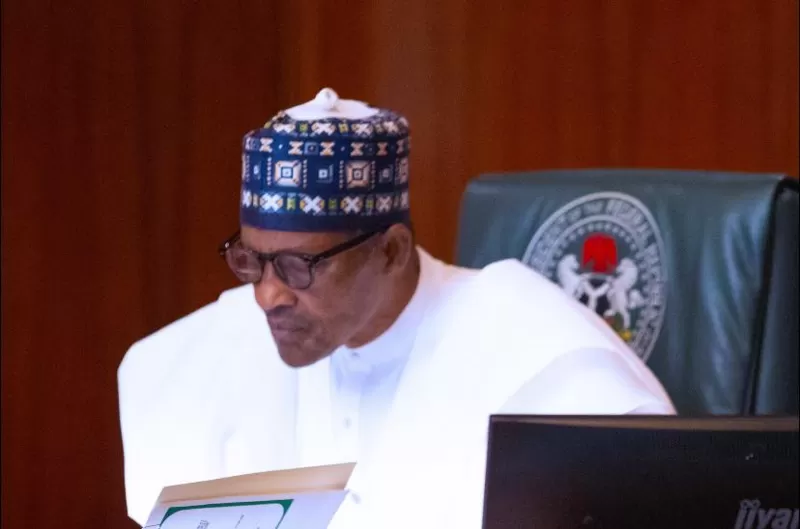In a scenario of being better late than never, the long awaited reform of Nigeria’s public service may be coming up soon, courtesy of President Muhamadu Buhari who has ordered the call-up of the Stephen Oronsaye Report. The so called document is an 800-page body of insights and recommendations by a Presidential Committee on Restructuring and Rationalisation of Federal Government Parastatals, Commissions and Agencies. It was set up on August 18 2011 by President Goodluck Jonathan, with former Head of the Civil Service of the Federation (HoCSF) Stephen Oronsaye as Chairman. Hence the name of the committee as the ‘Oronsaye Committee’.
Against the backdrop of the tectonic undercurrents generated by the contents of the report, it may not be a tea party to implement most of the recommendations, as the rot in the public service may have crossed the Rubicon, and requires extreme care to handle. By the same token, the present administration had set up relevant subcommittees to rejig aspects of the provisions of the Oronsaye Report. This much was mooted by President Muhamadu Buhari while addressing the Central Working Committee of the Association of Senior Civil Servants of Nigeria (ASCSN), in the State House last week, when he pointed out that the implementation of the Oronsaye Report will usher in fundamental changes in the process of governance.
For the purpose of recall, the Oronsaye Committee was charged with the task of reinventing the country’s public service through a comprehensive review pursuant to fashioning appropriate recommendations for transforming the system. The Committee submitted its report on April 16 2012. The report had been gathering dust on the shelf, with calls for its implementation going on unheeded. That was until May 2020, when President Muhamadu Buhari ordered its call-up, as announced by the Minister of Finance, Budget and National Planning, Zainab Ahmed, soon after the onset of the COVID-19 pandemic. In November 2021 the Buhari inaugurated two sub committees comprising former Heads of the Civil Service of the Federation, and other senior officials to review the Oronsaye Committee Report.
Given the profundity of its recommendations the Oronsaye Committee Report must qualify as perhaps the most significant initiative by the immediate past administration of Goodluck Jonathan to reposition governance in the country even beyond its tenure. Among its recommendations are the query on the bloated state of the public bureaucracy and the attendant malady of unacceptably high cost of governance. Reasons for this as adduced by the Committee include the gradual degeneration of the public service from being the engine room of governance to a job dispensing facility, where all comers were engaged just to earn some money at the end of the month, even without any service delivered. In that context the report harped on the syndrome of duplication of mandates and functions by government agencies, and furnished a long list of 102 out of a total of 541 of such agencies that should be merged or scrapped. Ever since this recommendation hit the public space the fear of attendant job losses had sullied the report as distasteful among the nation’s public bureaucracy. Another recommendation was the ban on television viewing during office hours.
Given the circumstances surrounding the call up of the Oronsaye Report, by the Buhari administration, at least two considerations are now playing out. Firstly is the commitment of the present administration to identify with the historic and urgent challenge of fostering a drastic reform regime in the country’s public service. Secondly is that with all the bashings it had been subjected to, the Oronsaye Report still has considerable merit to stand as the magic wand for taming the almost incorrigible tendencies in the country’s public bureaucracy.
Against the backdrop of the foregoing lies the challenge of implementing whatever recommendations by the various subcommittees reviewing the different aspects of the Oronsaye Committee Report. Against the backdrop of the prevailing economic circumstances of the country, especially with the widespread clamour for reduction of the size of the public bureaucracy and unbearable high cost of governance, the various subcommittees remain ham-strung to offer any substantial deviations from the core recommendations of the Oronsaye Report. This is a measure of the credibility and integrity of the report even as it offers bitter but vital pills for the country.
It is easily recalled that when the report first came out it was greeted with considerable misgivings across the federal public bureaucracy. Interestingly one of the measures which the reform exercise launched was a system wide ICT appreciation and training programme for the directorate cadre in the federal public bureaucracy, in preparation for the roll-out of e-governance in the country. To benefit from the exercise were over 5,000 of such officers nation-wide. Those were the days when a wide cross section of such leaders could hardly boot a computer even as such equipment were allocated to them.
On the apparent discovery by Oronsaye that most of the designated participants (directorate cadre), simply collected the training allowances and snubbed the training, he reportedly launched a Post Training Appraisal (PTA), scheme for verifying the progress of the ICT appreciation scheme. However the PTA suffered a major drawback as it was seen rightly or otherwise across the service by the affected officers, as an unwarranted examination on ICT appreciation and was stoutly resisted.
When Oronsaye retired from the service as HOSF on November 16th 2010, there was wild jubilation in not a few government offices and several relaxation spots by senior public officers who believed he was an incubus on their career circumstances. Lamentably however, such misguided public officers are still in service and are likely to resists and even sabotage fresh reform efforts.
Besides, while the Buhari administration may be blamed for delaying the implementation of the report, such a consideration may just be a mere half-truth. For over the years of scant regard for the degradation of the state of the public service, the disposition of the wider cross section of public servants had ossified against the onset of any major changes that will lead to losing their respective comfort zones. Hence, the wider body of public servants and not Buhari remain the cause of whatever delay had been the lot of the Oronsaye Committee Report.
It is therefore hoped that as it tinkers with the report, the Buhari administration is well primed to anticipate such insidious elements, and provide counter measures for their invidious antics. Secondly, given the paucity of time on its hands, the best which the administration can do now, is to predispose the envisaged reform exercise for effective implementation by its successor administration to execute. This is the obligation owed the nation by President Muhamadu Buhari with respect to the Stephen Oronsaye Report.

 Join Daily Trust WhatsApp Community For Quick Access To News and Happenings Around You.
Join Daily Trust WhatsApp Community For Quick Access To News and Happenings Around You.


